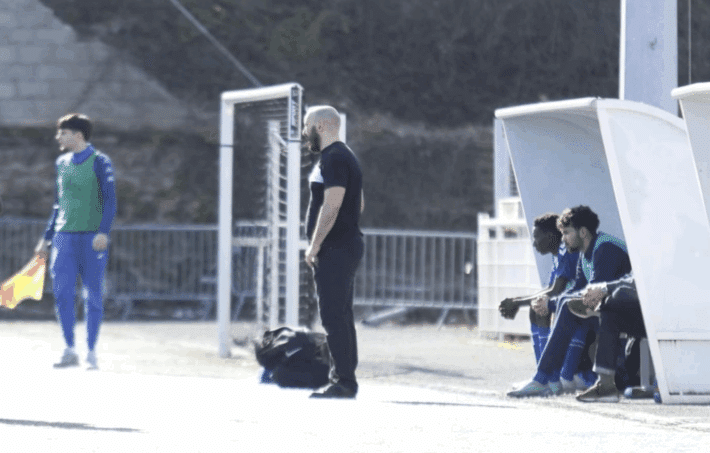Fouad Ben-Najah, the Paris-based coach of Villemomble SF’s U18 team, has delivered a searing critique of the current state of Tunisian football, calling for systemic change and responsible leadership.
Speaking from a place of deep personal connection and professional experience, Ben-Najah issued a heartfelt plea for reform in a sport he believes is losing its soul in his homeland.
“We love Tunisia more than we let on,” he said, articulating a bond that goes beyond borders. A former insider who once mingled with Tunisia’s footballing elite in the 2000s—from the era of Roger Lemerre to the likes of Adel Chedli and Alaeddine Yahia—Ben-Najah has seen both the potential and pitfalls of the national game. Yet, despite his ties and passion, he remains reluctant to join the domestic football scene.
“I want to help my country, but we don’t make room for those who want to make things happen. We’re still considered immigrants, even though we have our country in our hearts,” he lamented.
Ben-Najah’s concerns are far from sentimental. His critique centres on a football system plagued by dysfunction and mismanagement.
“A country’s DTN is the most important person. He’s the one who must drive a national sports policy. In our country, he doesn’t have a clear plan,” he said, pointing to a lack of technical direction, high coaching turnover, and crumbling infrastructure. “Coaches rotate every six months, we no longer train, we no longer have approved stadiums… It’s a constant waltz.”
In his view, the current football leadership has failed to capitalise on the nation’s rich footballing history and talent.
Once-thriving clubs such as Stade Tunisien and AS La Marsa now struggle, and economic instability has further deepened the crisis.
“The state no longer invests in sport,” he observed, noting how the aftermath of the revolution continues to take its toll on athletic development.
With limited opportunities at home, many coaches have opted for careers abroad.
Ben-Najah cited Mouine Chaâbani and Radhi Jaïdi—both now coaching outside Tunisia—as examples of talent lost to better environments. “Competent coaches are fleeing the country.
Not for the money, but for the infrastructure, to be able to work,” he explained.
“Money isn’t what interests me,” Ben-Najah added. “You want to work to advance football, fine. If you come for the money, it’s because you have nothing to offer on the sporting level.”
Still, despite his criticism, he hasn’t lost hope. With proper planning and leadership, he believes Tunisia can regain its position among Africa’s footballing elite.
Morocco, Senegal, and South Africa are overtaking us.
If we want to get back on the front foot, we have to stop the power games.
We need a real project, competent people, and resources.
Not necessarily millions. Just willpower, clarity, and hard work.
Asked whether he would return to Tunisian football in an official capacity, his answer was as bold as his vision.
I’ll come with my UEFA A diploma and a real project.
Not just to pretend. If I’m given the keys, with humility and by surrounding myself with the right people, I’m convinced that Tunisia can once again become a powerhouse in African football.












